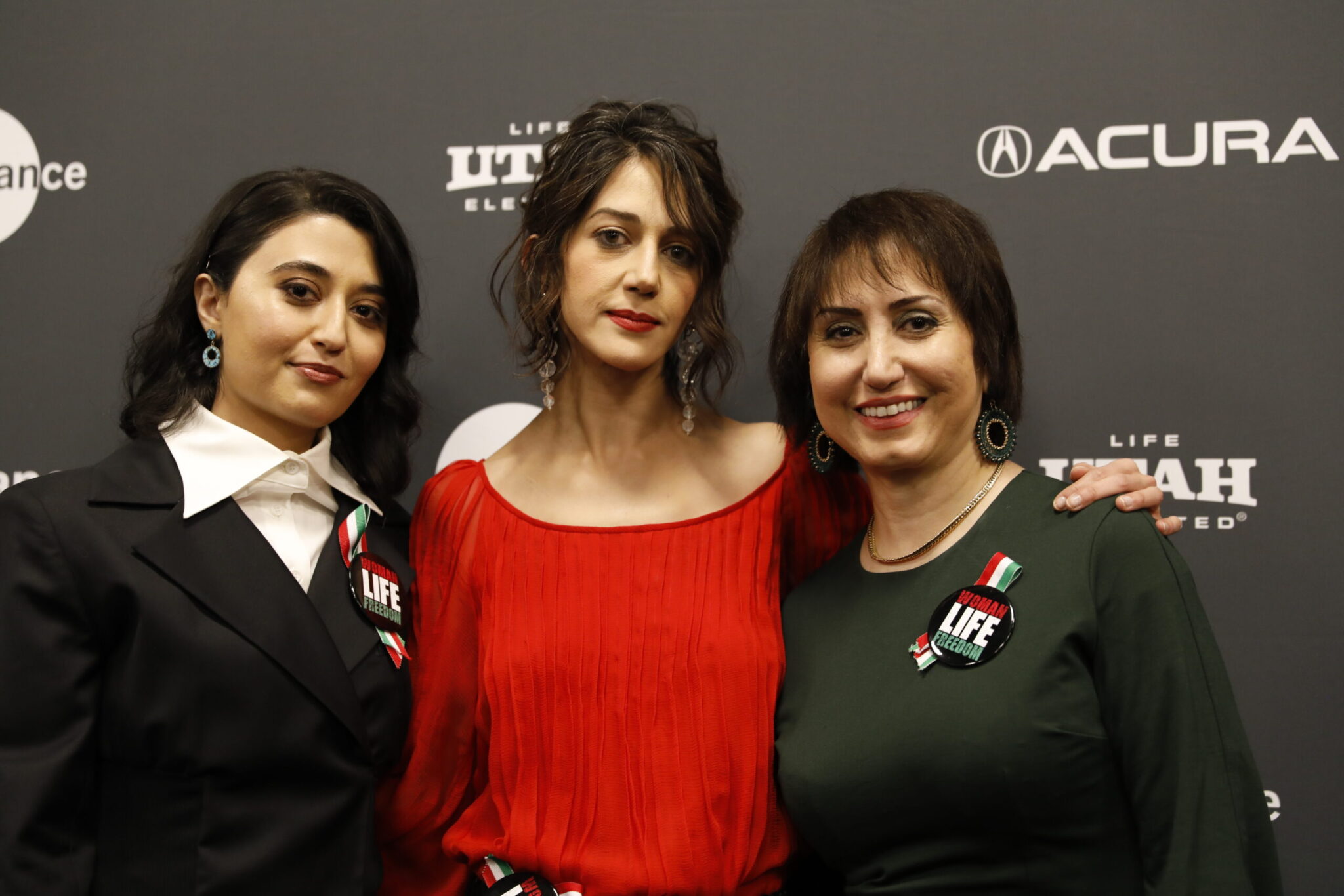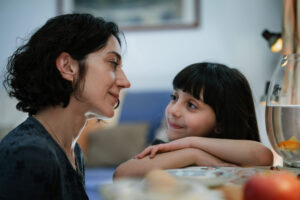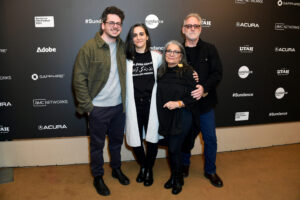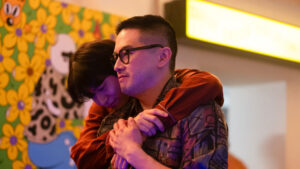PARK CITY, UTAH – JANUARY 19: Writer-director Noora Niasari (L) appeared with her mother (R) and actor Zar Amir Ebrahimi (C) at the premiere of “Shayda” at the Ray Theatre. (Photo by Anjelica Jardiel)
By Lucy Spicer
If the emotions in Shayda feel real, it’s because they are. The initial screenplay for the film was conceived when writer-director Noora Niasari asked her mother to write her memoirs so that she could fill in some gaps in her childhood memories. Niasari was born in Iran and raised in Australia by her mother, and this same mother-daughter dynamic is the very heart of Shayda.
Shayda is an Iranian woman living in a women’s shelter in Australia with her 6-year-old daughter, Mona. Having fled her abusive husband and filed for divorce, Shayda is on edge much of the time, but with Nowruz (Persian New Year) approaching, she’s cautiously embracing new beginnings. When a judge grants her husband visitation rights, Shayda’s courage is tested anew.
Niasari’s vérité approach relies heavily on the strength of Shayda’s actors. Lengthy close-up shots allow Zar Amir Ebrahimi to shine in the titular role, somehow exuding despair, conviction, and compassion in a single look.
As well as confronting a wide range of emotions, Shayda also addresses conflicts within the Persian culture head-on. Shayda spends a significant portion of the film preparing for and teaching Mona about Nowruz. The traditions are important and inspirational to her, but when she attempts to participate in community activities, she inevitably runs into people who condemn the steps she has taken to keep herself and her daughter safe.
Knowing that the characters in Shayda are based on real people heightens the film’s emotional stakes further. At the Q&A following the film’s premiere on January 19, Niasari welcomed her mother (the inspiration for Shayda) up onto the stage, as well as the women who inspired Joyce (the kind soul who runs the women’s shelter), and Elly (Shayda’s supportive friend). “You can give a house to a woman, but she will make it a home,” Niasari’s mother explains. “And for me, this material was always there. The story was always there. I had all my statements, everything, in a suitcase for years.” All those statements, documents, and memories translate into an undeniably powerful film.
Shayda’s courage and insistence on living the life of her choice feels especially timely today. “It’s remarkable to be here premiering our film while a women-led revolution is happening in our home country in Iran,” says Niasari during the Q&A. “I always grew up admiring my mother and her bravery and courage, but she’s one of many,” she continues, citing the millions of Iranian mothers and daughters fighting for freedom. “I’m just so proud to be able to amplify their stories and my mother’s story.”







